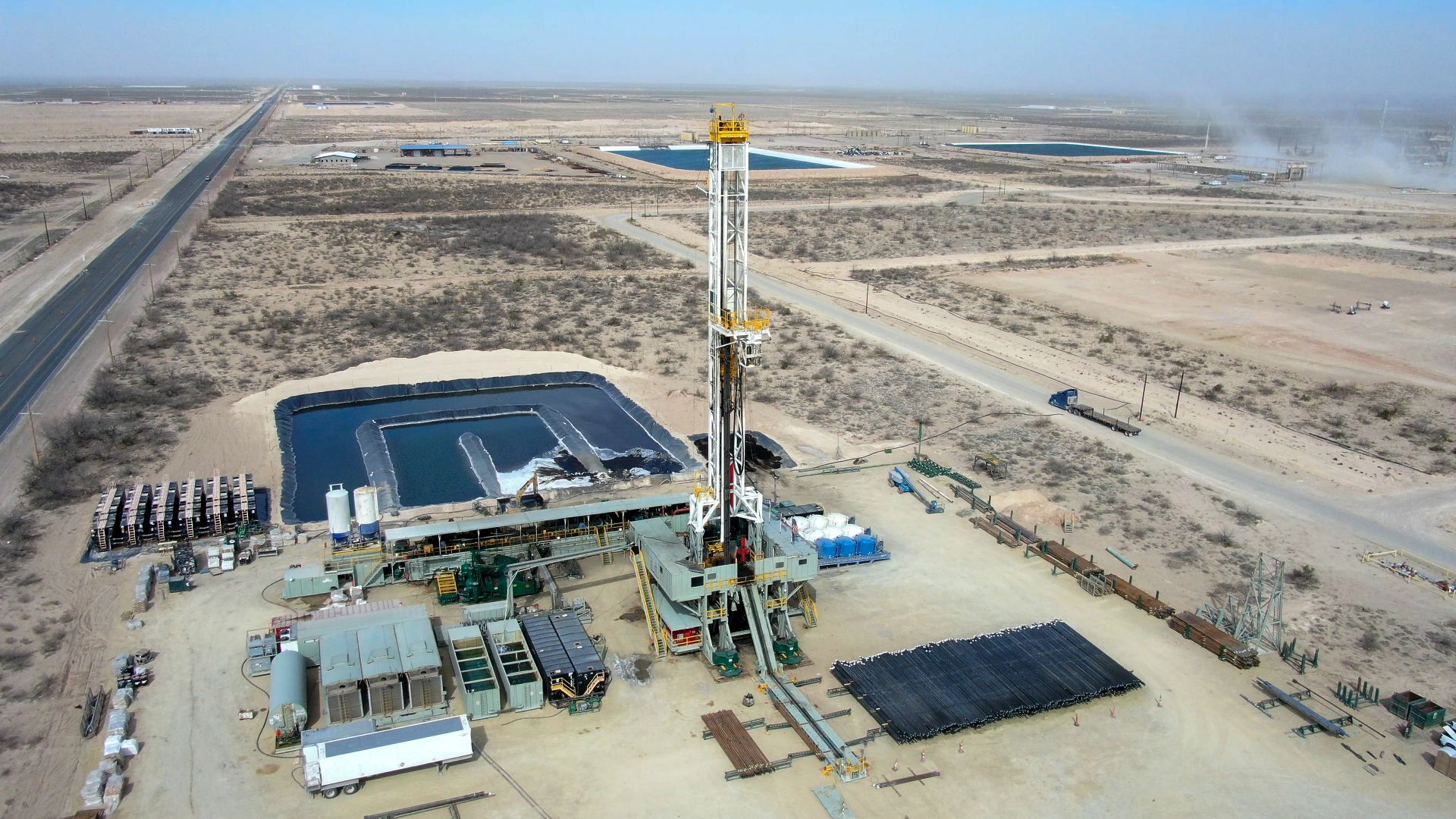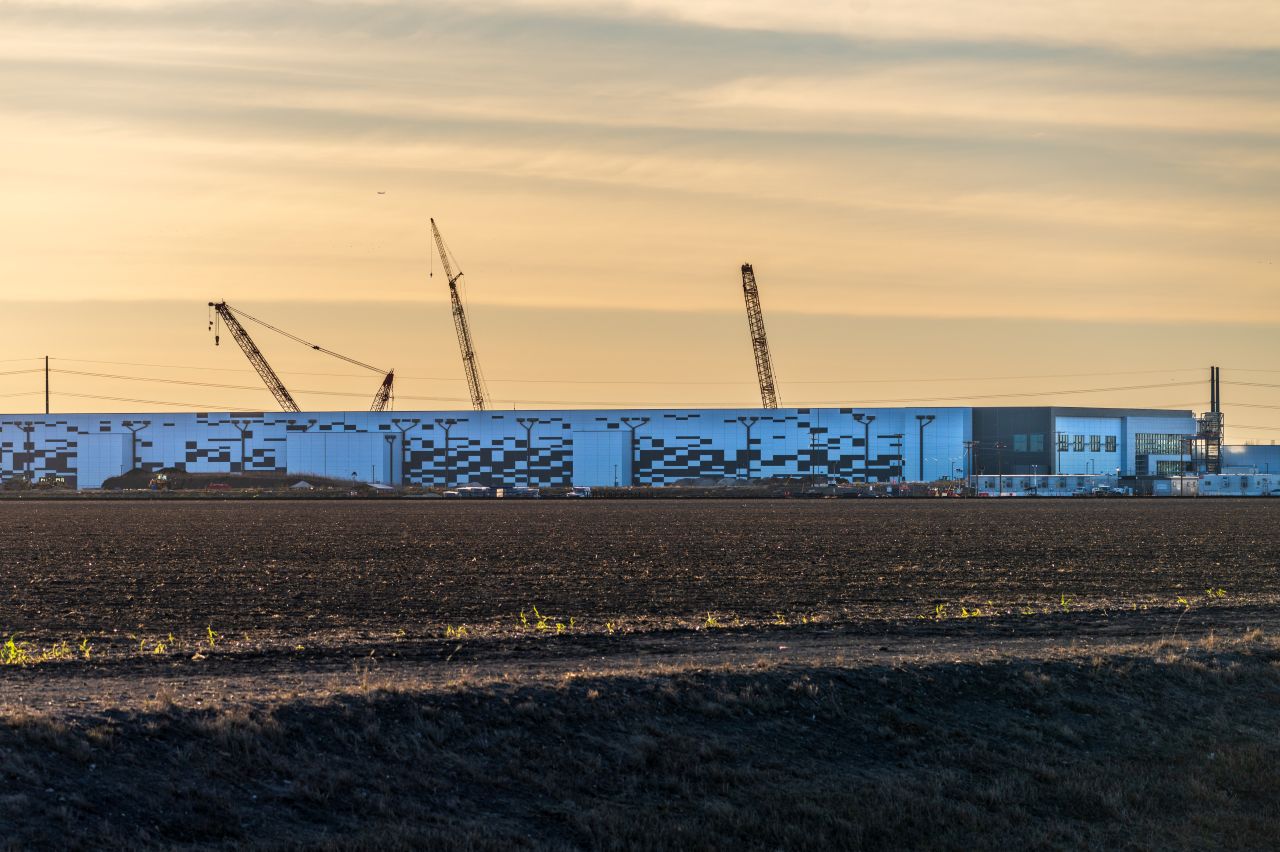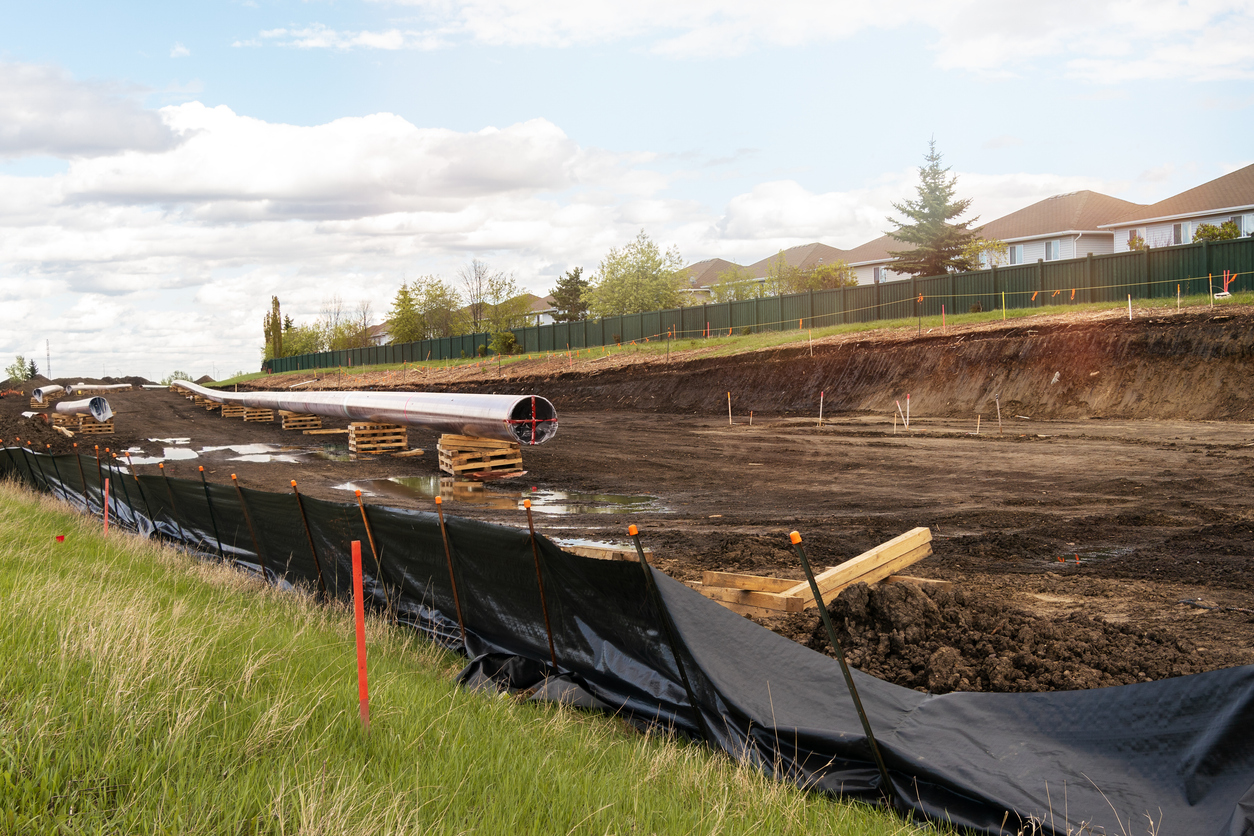Southwestern states struggling with drought debate the recycling of fracking wastewater

Oil and gas wastewater, a toxic byproduct of the fracking process, has become something of an Achilles’ heel for the industry. Often contaminated with carcinogens like benzene and arsenic, the water that flows back up from extraction wells is expensive to store, hard to reuse, extremely brackish, and has caused countless headaches for both industry and nearby residents. Fracking sites produce billions of gallons of this “produced water” a year, and yet a safe method of disposal remains elusive.
Colorado, New Mexico, and Texas are water-starved states where oil and gas’s demand for freshwater directly imperils public and environmental health. These southwestern states are pursuing ways to make industry recycle more of its wastewater in oilfields to avoid depleting freshwater sources, as well as attempting to expand the use of this wastewater for other purposes, such as agricultural use, even as the risks of doing so remain high.
“Oil and gas development uses huge volumes of water,” said Michael Freeman, a senior attorney in Earthjustice’s Rocky Mountain office. “In the era of climate change and water scarcity, we need to conserve this resource.”
Freeman said if drilling is going to occur, then oil and gas companies should be required to recycle their wastewater.
“If wastewater isn’t carefully managed, companies will try to dispose of it in ways that are harmful and not protective of our health,” said Freeman. “They’ll discharge it into rivers and streams or just spread it on roads and croplands, neither of which are appropriate disposal methods.”
New Mexico
In May, after 18 months of consideration, the New Mexico Water Quality Control Commission voted to prohibit any discharge of treated fracking wastewater after environmentalists and the New Mexico Environmental Department argued that proper regulations are not yet in place for any of the more than two billion barrels of toxic wastewater produced each year.
Rachel Conn, deputy director for Amigos Bravos, a conservation organization dedicated to protecting and restoring the waters of New Mexico, said that instead of the oil and gas industry recycling its wastewater and using less fresh water, it is seeking public dollars to subsidize the treatment and disposal of their waste.
“Bottom line, the oil and gas industry should be required to recycle on the oilfield as much of this toxic wastewater as they can,” she said. “And for the rest of the wastewater that they can't recycle, they should be required to treat and dispose of the waste at their own cost.”
Conn said that the oil and gas industry today is recycling about 60 percent of its wastewater from fracking.
“We should not be having a conversation about reuse outside of the oilfield until the industry's reuse numbers are above 90 percent,” she said. “In addition, we should as a state be pursuing the science to both better characterize what is in produced water and develop the appropriate standards to protect New Mexico's communities, wildlife, and public health.”
Environmentalists’ cause for relief in New Mexico’s decision was brief. In June, an industry advocacy group called Water, Access, Treatment and Reuse (WATR)—with board members from oil and gas giants Chevron, ConocoPhillips, and Occidental Petroleum—put forward a new proposal to expand use of oil and gas wastewater.
Ignoring public outcry, the water commission agreed to allow this proposal for expanded use of wastewater to move forward and to be debated at a meeting later this fall. Reopening the issue so soon after finalizing the rule and without clear new scientific findings was viewed by environmental groups and Democratic lawmakers as an outrageous maneuver going against established rulemaking procedures.
“Reopening this issue undermines the Democratic process and disrespects the public’s investment of time and trust,” said state Sen. Harold Pope, a Democrat from Albuquerque who presented a letter from 25 Democratic lawmakers urging the commission to keep the current rule in place. “There has been no new peer-reviewed, published scientific evidence presented.”
Tannis Fox, senior attorney at the Western Environmental Law Center, said that in 25 years of practicing law in this field in New Mexico, she has “never seen such disregard for the norms of administrative rulemaking or politically motivated decision-making overtake science and public safety as driving factors.”
Fox said fracking wastewater can contain an array of toxic constituents including heavy metals, naturally occurring radioactive materials, “forever chemicals” or PFAS, and other pollutants. Currently, when not recycled, fracking wastewater is mostly disposed of through injection wells, but this method is problematic because it can trigger earthquakes.
“New Mexico is awash in produced water,” said Fox. “It costs the industry a lot to dispose of it properly and they are looking for cheaper usable alternatives, including industrial and agricultural uses.”
Jennifer Bradfute, an attorney for the WATR industry group, told the New Mexico Water Quality Control Commission that they should consider the economic upside of re-using fracking wastewater. She warned of the “missed opportunity for New Mexicans to treat and use that water in their own projects, for their own economic development.”
Texas
In June, Texas Gov. Greg Abbott signed into law a bill authorizing the use of treated fracking wastewater for the irrigation of crops and transferring the authority over oil and gas wastewater from the Railroad Commission (RRC) to the Texas Commission on Environmental Quality (TCEQ).
This has Texas farmers and environmentalists concerned that treated wastewater could soon threaten public health and the integrity of the state’s land and water, especially since the Texas law limits legal liability for oil companies and landowners if the wastewater results in harmful outcomes. Texas is home to far more oil and gas production than New Mexico and as a result generates some 33 million barrels of fracking wastewater every day (over 1,500 Olympic-sized swimming pools)—or around 12 billion barrels a year.
Evgenia Spears, Sierra Club Lone Star Water Program Coordinator, said that the state shouldn’t rush implementation.
“At this point, research is incomplete and the potential long-term risks to public health and the environment are unknown,” she said. “This lack of understanding is particularly concerning when considering using this water for purposes like agriculture or even municipal uses. This is why Sierra Club advocates for more research and responsible legislation before we embark on beneficial reuse of produced water outside the oil and gas field.”
She said another significant concern is the lack of specific water quality standards for fracking wastewater.
“At this point, TCEQ has just started compiling a database of toxic constituents found in produced water,” she said. “Developing water quality standards isn’t a fast process, but in this case, having science-based regulations in place is extremely critical to prevent a potentially irreversible public health and environmental disaster.”
Spears said as of late August, TCEQ has five pending applications to discharge treated produced water into waterways within the Pecos River watershed in West Texas and that the agency has signaled no intention to delay the approval of these applications.
“Compared to Texas, New Mexico has taken a much more cautious and, in our view, more responsible approach to produced water management,” Spears said.
Colorado
In April, Colorado’s Energy and Carbon Management Commission, which regulates the oil and gas industry, passed first-in-the-nation regulations requiring 4 percent of oil and gas wastewater to be recycled starting in 2026 and rising to as much as 35 percent by 2038.
The law also requires that the recycling of fracking wastewater not cause more air pollution from the oil and gas industry, either in greenhouse gases or health-damaging pollutants such as benzene. There is concern that the facilities that treat wastewater – and the trucks that serve them -- could emit more pollution into already overburdened communities near fracking sites.
Some environmentalists are disappointed with aspects of the law, including the relatively modest goals (only 4 percent of wastewater must be recycled next year) and the lack of penalties for companies that fail to follow the rules. But many environmental organizations still praised the work of the Colorado Produced Water Consortium, a legislatively created coalition meant to shape policy around the management of fracking wastewater.
"After years of hard work by community members and the deliberations of the Consortium members, it is an important step for Colorado to require the use of recycled produced water in oil and gas operations,” Dr. Barbara Vasquez, Western Colorado Alliance and consortium member said in a statement. “We need to build a solid foundation on which to continue our work to protect and preserve our critical water resources.”















